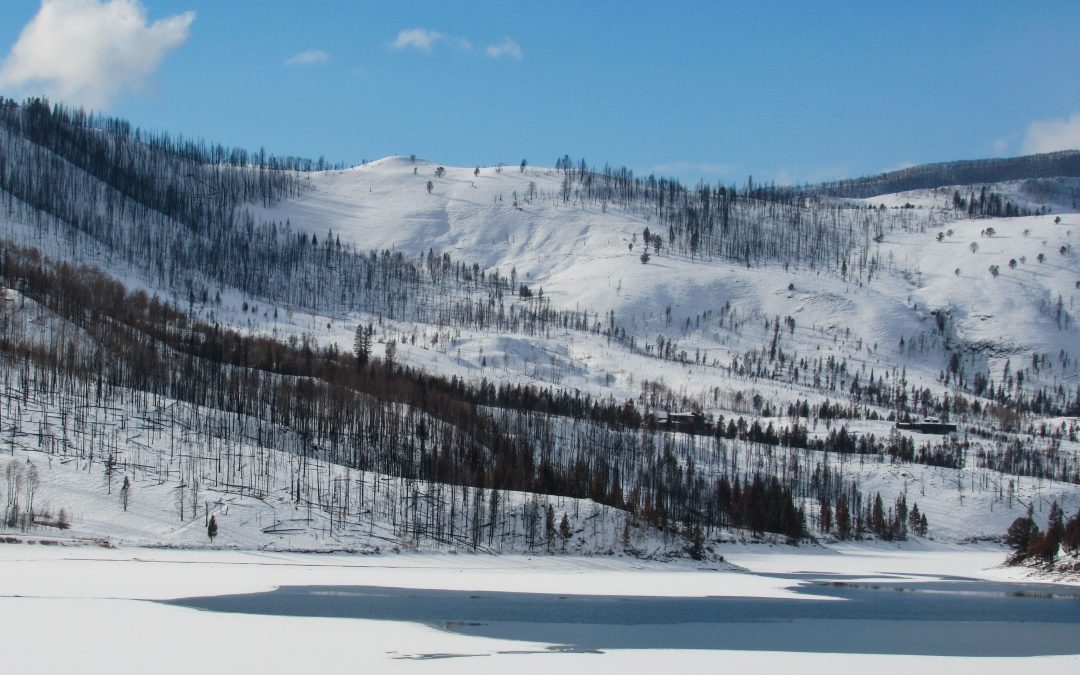Colorado’s fire-scarred mountainsides, small-town water districts, drought-stricken rivers and ranches, and the Colorado Water Plan will see a one-time cash infusion of $32 million to $75 million under a bipartisan stimulus program approved by Gov. Jared Polis and Colorado lawmakers last week.
The Colorado Recovery Plan, as it is known, sets out a $700 million spending plan that includes funds for transportation, education and small businesses, among others, and also includes:
+$10 million to $25 million for wildfire recovery and risk mitigation;
+$10 million to $20 million for projects identified under the Colorado Water Plan;
+$10 million to $25 million for mountain watershed restoration; and
+$2 million to $5 million for agricultural drought response.
In hard-hit cities such a Glenwood Springs, where last summer’s Grizzly Creek fire came close to destroying its mountain water system, the cash could help the city’s multi-million-dollar effort to rebuild its water treatment plant and other projects.
“The details aren’t clear yet,” said Glenwood Springs City Manager Debra Figueroa, “but we absolutely plan to look into it.”
For groups that have been working for years to establish a permanent source of funding for the Colorado Water Plan’s myriad projects and programs as well as stream and watershed restoration projects, the funding is expected to provide a much-needed boost.
“The good news is that this will reach projects all over the state,” said Bart Miller, healthy rivers program director at Western Resource Advocates and member of the Water for Colorado Coalition. “I think it’s going to be money well spent. It’s one-time, but it’s going to have a big impact for the water plan and drought [mitigation].”
The Colorado Water Conservation Board oversees the water plan.
“We don’t yet have any plans in place to determine how the funding would impact our programs,” said spokesperson Sara Leonard. “Watershed funding is of course needed for post-fire mitigation needs, and we also look forward to working with the legislature on how funding can be put to the best use.”
The recovery plan also allocates millions of dollars for rural communities and the ranches and cattle operations that have struggled during the pandemic and persistent drought conditions.
“Agriculture has been hard hit by the drought, and we do need more money for water projects,” said Gene Manuello, an Eastern Plains rancher near Sterling.
But Manuello said the sprawling spending plan raised questions in his mind about whether the state was spending money too freely.
“I’m a Republican and I am, in general, not in favor of these kinds of government stimulus programs,” he said.
The $700 million recovery program is being funded by a better-than-expected recovery in state tax revenue collections. Last year as the pandemic swept the country, shutting down businesses and government offices, Colorado slashed $3.3 billion from the state budget, anticipating that it would take several years before tax revenues recovered enough to restore state spending.
But the turnaround came faster than expected, allowing lawmakers and the governor to jump-start infrastructure work and job creation in order to help the state recover faster.
Western Resource Advocates’ Miller said the $32 million to $75 million will be useful for dozens of groups and communities.
“I’m very encouraged,” Miller said. “It’s a great opportunity.”
Jerd Smith is editor of Fresh Water News. She can be reached at 720-398-6474, via email at jerd@wateredco.org or @jerd_smith.
Fresh Water News is an independent, nonpartisan news initiative of Water Education Colorado. WEco is funded by multiple donors. Our editorial policy and donor list can be viewed at wateredco.org.


 Print
Print